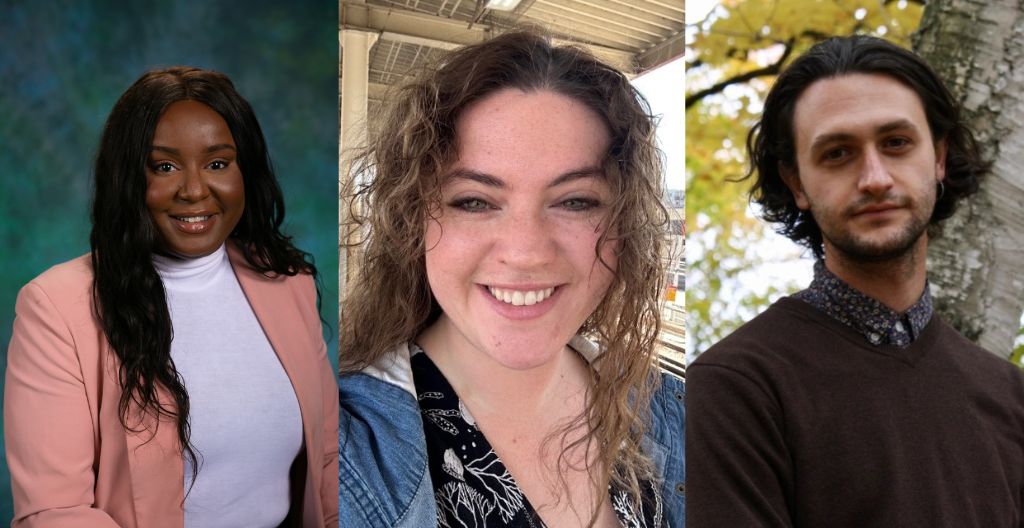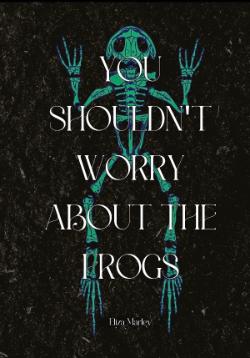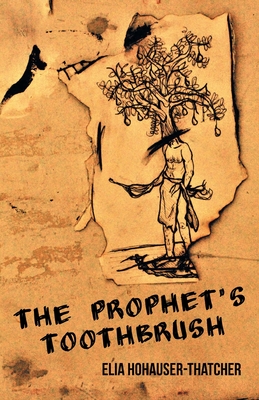archive
Loyola creative writing alumni talk about their published books (10/2/2023)

When Eliza Marley graduated from Loyola with a BA in creative writing in 2019, she wanted to take a break before considering going into a graduate program. Her main goal was to work and write, with the ultimate desire to get a collection of stories published. This May, after working multiple office jobs, going through a world pandemic, and getting six of her short stories published in different magazines, she achieved just that.
Her collection of nine magical realist and surrealist stories, You Shouldn’t Worry About the Frogs, has been published by Querencia Press.

“A lot of my characters are blue-collar, small-town Midwest America, very Midwestern Gothic because I love that and I don't think like the Midwest gets enough credit for being really creepy on its own,” she says.
Marley not only writes about what she knows, the Midwest and the Gothic, but also treats these stories as a camera lens to get a glimpse of the linear storylines of the characters, without having the traditional beginning, middle, and end. Her characters and stories are ongoing, and the loose threads emulate the ever-changing perspective humans have on events occurring in their lives, whether those be realistic or magical realism.
She thanks Loyola as one of the main motives for pursuing a writing career, a path she has always known she wanted to follow.
“It was nice to be taken seriously as someone who was looking to pursue creative writing as a career,” she says. “The skills I gained were fantastic, just in critical thinking, writing, and being able to see the world in different ways and communicate with other people. But what especially was nice was to be taken seriously as someone who wanted to be an artist and who was an artist,” she says.
Marley’s biggest advice to current students is to talk to their professors. "I got really good reading recommendations from a lot of a lot of the professors. I had a wonderful mentorship with Michael Meinhardt, who was so supportive my whole time here, and Laura Goldstein, Howard Axelrod, and David Kaplan.”
Marley is now pursuing an MA from the University of Illinois Chicago, with a focus on climate fiction studies and folklore. She hopes to start a PhD program after obtaining her Master's degree.
With the same goal of taking a break to figure out her future, Kehinde Winful decided to work before going into law school, after finishing her Master’s Program in International Development. It was during that time, as she was deciding on her future, that she wrote her first novel, Flooding the River.
Her love for writing, and what eventually led her to write Flooding the River, was taking a fiction workshop during her time at Loyola. After being in a classroom that encouraged her to write and find her own voice, she did everything she could to become a published author.
Her debut is inspired on her “writing from the lens of being a black woman and an African woman.” Coming in 2024 from Wise Ink, Flooding the River follows a third-person nonlinear narrative about a Nigerian American woman named Lolah and tells the story of African women in love.
Winful always knew her debut would be about love, but as she began writing Flooding the River the concept of love she wanted to write about widened and deepened. Not only did she want to write about romantic love, but she wanted to write about familial love, self-love, and friendship. Flooding the River is just that.
“A lot of stories about women of color, specifically Black women, are sitting around kind of like suffering and what we've been through and things like that,” she says. “So, I wanted to write a different kind of story about hope…. I wanted a happy love story.”
Winful says she writes fiction as she writes poetry, with very lyrical prose. She writes not only for a wide audience and the introspective reader but also specifically for Black women to “just read a book and see themselves reflected back in the character and in ordinary characters that experience life how they experience life, and get a happy ending when it’s all said and done. That was really important to me, to show joy in the writing process and in storytelling.”
She remembers her experience at Loyola as formative because she had a lot of exposure to distinct types of writing.
“It felt like you had to cultivate the kind of writer you wanted to be,” she says. “There was so much exposure to different kinds of writing. And I think the exposure allows you to find your own voice. Then the practical experience of writing blogs, writing stories, writing poems, having that kind of workshop … I think is really invaluable as a writer.”
Now, while working in commercial litigation, Winful is also achieving her dream of becoming a published author.
Elia Newsom, formerly known as Elia Hohauser-Thatcher, also found his voice during his time at Loyola, and it has led him all the way to being a writing instructor and to publishing his own collection of poems.
The Prophet’s Toothbrush, released in 2021 by Finishing Line Press, tackles topics of masculinity, trauma, and the Midwest.
The chapbook, titled after one of its poems, is “a coming-of-age story about growing up in Detroit, an interrogation of toxic masculinity through a feminist lens, and a confessional look at family trauma.”

Newsom says he wrote the majority of the poems in the collection while in graduate school at Chatham University, where he studied in what he recalls as an MFA program focused on place-based writing, eco-feminism and social justice. The revenue he makes on the book is donated to HAVEN of Oakland County, an organization that supports survivors of domestic violence and sexual assault.
Newsom’s chapbook was inspired by his own lived experiences, his exploration of masculinity, and growing up in the Rust Belt around Detroit. He continues to write poetry, using it to work through his day-to-day life.
He is currently also working on a non-fiction piece about the “university” and understanding the concept and politics of the institution.
His own perspective on education was influenced by his time at Loyola and instruction from professors like Aaron Baker, with whom he took over three classes. This gave him the opportunity to develop his writing and understanding of himself as a writer, academic, and professor.
“[At Loyola] you take a lot of workshops and you write lot and you get a lot of feedback, and I just don’t know of any other way to get good at writing and be prepared more for publishing than by getting a ton of that, which was super helpful. And it also helped me find my own voice,” he says. “We were always exposed to other writers and values in Chicago. It was really helpful to find your place.”
While getting his graduate degree, Newsom was teaching writing. He taught in a wide variety of places such as high schools, retirement homes, libraries, colleges, and a jail, the last of which was his most transformative experience.
“I always wanted to be a teacher,” he says. “That first experience of teaching in jail was probably the most transformative to me, very selfishly, and has informed a lot of not just my teaching, but my politics.”
You can purchase the books mentioned here:
Eliza Marley, You Shouldn't Worry About the Frogs (2023)
Kehinde Winful, Flooding the River (expected 2024)
Elia Newsom, The Prophet's Toothbrush (2021)


